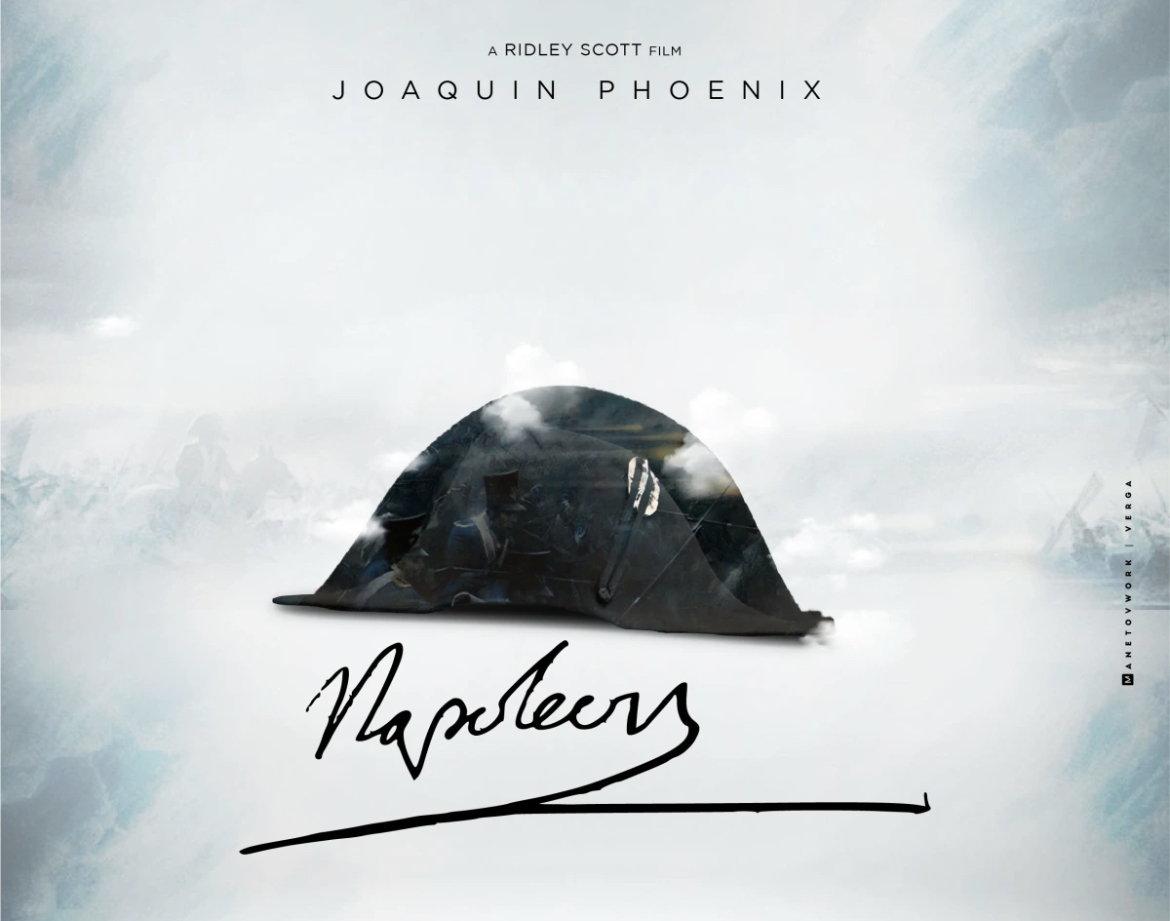“Napoleon” is a hybrid biopic and war movie about the 19th century general and dictator Napoleon Bonaparte, and the film currently sits at a 6.2/10 on IMDB with a runtime of 158 minutes. While Ridley Scott delivers a beautiful, unforgettable movie in his 2023 blockbuster “Napoleon”, it nevertheless contains a nonsensical plot, wooden acting, and frenetic pacing. Surprisingly, “Napoleon” is a better viewing experience for audiences with little to no prior knowledge of the Revolutionary and Napoleonic periods, at least as compared to audiences with significant background knowledge.
“Napoleon” is not a clever or subtle movie. Its opening scene shows Marie Antoinette’s beheading, complete with mocking Jacobins and a scowling Napoleon Bonaparte. This one scene sets the tone perfectly for the rest of the movie. For starters, “Napoleon” is almost laughably inaccurate, as Bonaparte was never present during any of the royal executions. The tone of this scene, like most of the movie, is completely indecipherable — a whimpering and shaking Marie is led to the guillotine, strapped in, and relieved of her head, while dozens of Frenchmen sport expressions and jeers that are almost cartoonishly goofy. This bloody spectacle, in any other context, would be either played as a tragedy or a triumph, but despite the blood and gore, this scene is more funny than anything else.
This scene sets the tone for Joaquin Phoenix’s baffling performance of the titular French dictator. Phoenixis completely unbelievable as both a dictator and a general, and he mostly appears as a bumbling oaf during both wartime and political intrigue scenes. Phoenix feels most at home in the film’s true emotional heart —its fraught, toxic relationship between Bonaparte and Josephine, his wife. In these scenes, his wooden acting feels intentional, and occasionally his domineering and hostile personality becomes downright vicious as he berates (and is berated by) his wife.
Even in these scenes, however, the film slips into farce; Bonaparte abandoning his Egyptian campaign because he was cuckolded by a bisexual cavalry commander, Bonaparte being laughably bad in bed. This was actually a surprisingly positive aspect of the film — there are more than a few genuinely funny scenes, usually centered around Bonaparte either making a fool of himself or getting one over on an even more pompous nineteenth-century European aristocrat.
But this is all a natural consequence of casting Joaquin Phoenix as Bonaparte, rather than a more serious dramatic actor. Joaquin’s performance of Bonaparte feels most like his performance of Arthur Fleck from the film “Joker”. Both characters exist in a tonally dark setting, delivering a bipolar performance with surprising comedic undertones. However, “Napoleon” doesn’t hold a candle to the critically acclaimed “Joker,” being both larger in scale and smaller in ambition than Joaquin’s previous work.
“Napoleon” is a decent movie composed of very strong and very weak elements. Battle scenes are breathtakingly gorgeous feats of organizational genius, but their runtime is short and their impact diminished by the manic pacing and nonsensical plot. Costume design is elaborate and beautiful, but many of the best costumes are placed on non-speaking characters. Incredible, heartfelt performances of interpersonal drama by Phoenix and Vanessa Kirby are adjacent poorly executed political drama.
This movie makes no sense, but whatever is currently on screen is usually enjoyable, resulting in one of the most disorienting major films to release in years. And yet, there are moments of profound beauty. Josephine’s chateau, the sack of Moscow, Bonaparte’s final exile — these are all unforgettable and powerful scenes. If only the rest of the movie was so coherent.















